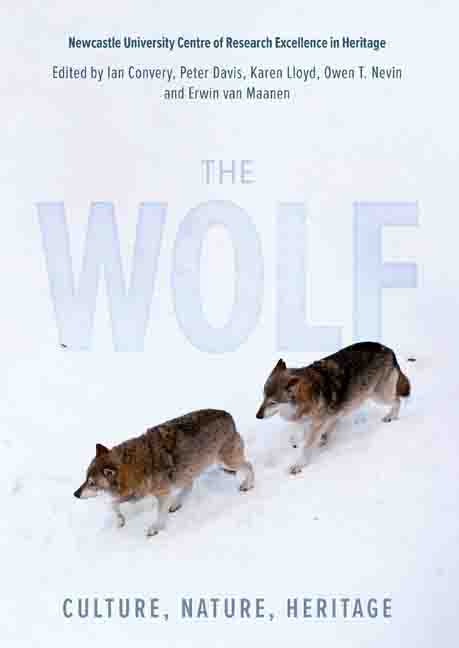Book contents
- Frontmatter
- Dedication
- Contents
- List of Illustrations
- Preface and Acknowledgments
- List of Abbreviations
- Poem: Trophic Cascade by Camille T Dungy
- Foreword
- Part I Imagining the Wolf
- Part II What Makes the Wolf
- Part III Return of the Wolf
- Part IV Personal Encounters
- Afterword: The Ecological Disadvantage of Living on an Island
- Glossary
- List of Contributors
- Index
7 - Never Mind the Girl; What About the Wolf?
Published online by Cambridge University Press: 10 January 2024
- Frontmatter
- Dedication
- Contents
- List of Illustrations
- Preface and Acknowledgments
- List of Abbreviations
- Poem: Trophic Cascade by Camille T Dungy
- Foreword
- Part I Imagining the Wolf
- Part II What Makes the Wolf
- Part III Return of the Wolf
- Part IV Personal Encounters
- Afterword: The Ecological Disadvantage of Living on an Island
- Glossary
- List of Contributors
- Index
Summary
The Argentine-born writer and linguist Alberto Manguel admired Little Red Riding Hood as a ‘polite and daring’ girl who ‘exudes something … subtly attractive’ because ‘she is emblematic of individual freedom’, eternally transgressive because she is digressive, following desire paths rather than the well-trodden route. ‘Because of her digressions the woods come into being, and also the wolf, the woodcutter, the grandmother's romantic adventure’ (Manguel 2019, 5–9). Not only does this comment negate the trauma of the grandmother's treatment by the wolf, but it reduces the wolf to a subsidiary narrative device. Manguel here echoes Bruno Bettelheim's assertion from 40 years earlier that ‘the wolf is a passing manifestation’ (Bettelheim 1978, 66–7). Both Manguel and Jack Zipes (1979, 160–76), whatever their disagreements with Bettelheim's rigidly Freudian, patriarchal approach, follow him in interpreting the familiar Perrault-Grimm strand of the Red Riding Hood story in terms of the lone male wolf attacking a human female. For Manguel, that female represents ‘civil disobedience’, for she can choose between becoming a victim of the wolfish sexual predator, or herself become the ‘seduced seducer, worldly innocent’ and ‘mistress of her own fate’. While this statement seems to represent a traditional male view of female sexuality which is at best unrealistic and at worst horrific, as we shall see, other writers have also seen the girl as co-seducer with the wolf (Beckett 2009), notably Angela Carter in her stories (1995) and in the film, The Company of Wolves (1984), which amalgamated them.
Before turning to the Perrault-Grimm story trail, it is best to state that their lone, male, sexually predatory wolf has nothing to do with an actual wolf which, for English readers at least, is not even a folk memory (Addyman 2021, 198). Their fictional wolf is not a pack animal hunting for its family; it is not hungry but voracious; and it does not have to cope with either human appropriation of its habitat, or severe weather.
- Type
- Chapter
- Information
- The WolfCulture, Nature, Heritage, pp. 83 - 92Publisher: Boydell & BrewerPrint publication year: 2023



